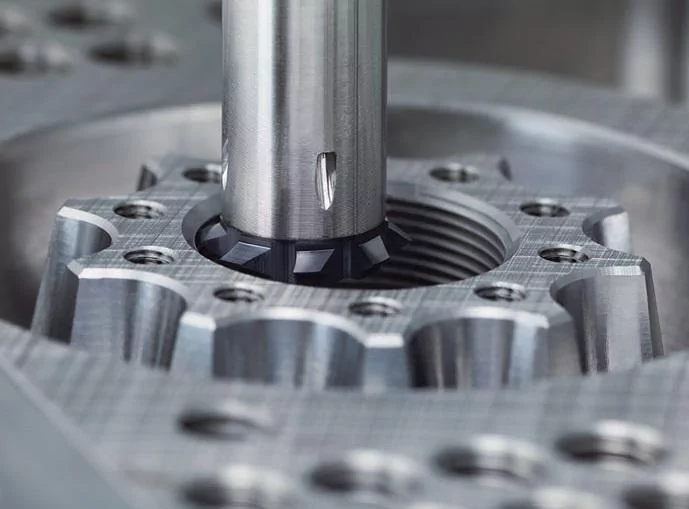Choosing the proper material is necessary during CNC machining as it impacts the cost, durability and performance of the product. CNC machining services make it possible for CNC machine shop operators to manufacture parts in high volume. This post will discuss the importance of material selection in CNC machining and how it affects the end product’s longevity and quality.
Understanding CNC Machining
In CNC machining, the equipment is managed by computer software that has been preprogrammed. It helps to precisely cut, shape, and finish materials into parts and components. CNC machining ensures high accuracy, consistency, and efficiency throughout production, whether for prototypes or mass production, by automating these tasks.
When it comes to CNC machining, picking the right material is key. A material’s properties—like how hard it is, its strength, and how well it handles heat—affect how easily it can be machined. For example, tougher materials like titanium might need to be cut more slowly and with special tools, while softer materials like aluminum are much quicker to machine. To get the best result in terms of durability, performance, and appearance, it’s important to consider how the material will affect the entire machining process.
Factors Influencing Material Selection
There are certain factors that a CNC machine shop needs to keep in mind before choosing it for machining. Every material has its properties and is suitable for different processes. Here are the different factors:
Mechanical properties
A material’s ability to withstand stress, wear, or deformation depends critically on its strength, hardness, and flexibility.
Thermal properties
A material’s performance in high-temperature settings or heat-sensitive applications is influenced by its heat resistance and thermal conductivity.
Chemical resistance
To guarantee longevity in challenging circumstances, materials must be able to tolerate exposure to chemicals and environmental elements.
Cost considerations
Achieving a cost-effective and high-quality production requires striking a balance between material cost and performance.
Common Materials Used in CNC Machining
Here are the popular materials used in CNC machining:
Metals: Metals such as steel, aluminum and titanium are used in CNC machining.
Aluminum: is the most used material because it is lightweight, easy to machine and is commonly used in automotive and aerospace applications.
Steel: is the second most popular option for the CNC machine shop. It offers strength, and durability, making it ideal for structural tools.
Titanium: is famous for its strength-to-weight ratio and corrosion resistance, it is used in medical devices and aerospace parts.
Plastics: It is common practice to machine plastics like acrylic and polycarbonate for particular purposes.
Display panels and light fixtures are frequently made of acrylic because it is robust and clear.
Polycarbonate: is perfect for lenses, electronics housings, and safety equipment because it is strong and resistant to impact.
Composites: Lightweight yet robust qualities make composites like carbon fibre and fibreglass highly valued.
Thanks to its strength and low weight, carbon fibre is frequently used in high-performance vehicles, sports equipment, and aerospace.
Because fibreglass is strong and resistant to corrosion, it is frequently used in the construction, automotive, and marine industries.
Impact of Material Selection on the Machining Process
Tool wear and machine efficiency
The machining process’s efficiency and the rate at which tools wear out are affected by varying materials. Steel and titanium are examples of harder materials that may require slower machining speeds, which lowers efficiency, and can lead to faster tool wear. Aluminum and plastics are examples of softer materials that are easier to machine, which results in longer tool life and faster production.
Surface finish and tolerances
The precision and surface finish quality of the finished product are significantly influenced by the properties of the material. While harder materials might take more work to achieve the appropriate degree of accuracy and smoothness, softer materials usually yield smoother finishes more readily.
Production costs and lead times
Timeliness and cost of production can be directly impacted by material selection. The use of specialized tools, slower machining speeds, or more frequent tool replacements may be necessary for harder materials, which would raise lead times and costs. Conversely, materials that are simple to machine can reduce expenses and increase output.
Best Practices for Material Selection
Consulting with Experts
When deciding on materials, it is critical to consult with CNC machining experts. Their expertise can assist you in selecting the best material for your specific requirements, taking into account factors such as machining requirements and performance characteristics.
Testing and Prototyping
Use prototypes to test the performance of various materials before moving forward with full-scale production. Prototyping enables you to evaluate the material’s suitability and make adjustments based on real-world performance.
Ongoing Evaluation
Evaluate the performance of your chosen material on an ongoing basis during production. Review and adjust your material selection on a regular basis to ensure that it meets changing requirements while maintaining high-quality standards.
Conclusion
In short, choosing the right material for CNC machining is critical for getting the best performance and durability out of your parts. Understanding material properties, consulting with experts, and testing prototypes will ensure that your project meets its objectives efficiently and cost-effectively. Making wise material choices yields better results and a more successful machining process.
